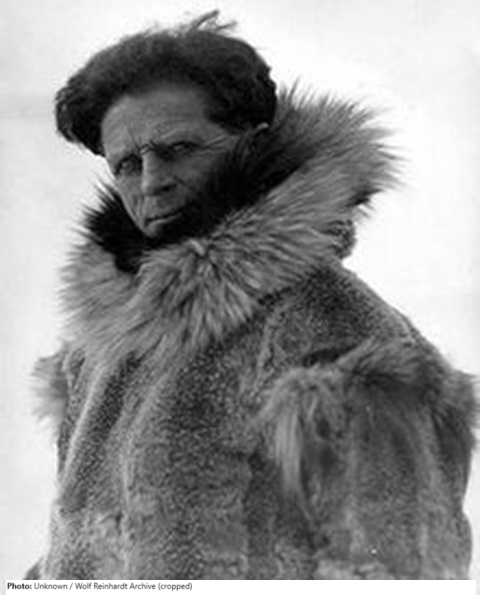Leonhard Seppala

Biographical information
| Roles | Competed in Olympic Games (non-medal events) |
|---|---|
| Sex | Male |
| Full name | Leonhard•Seppala (Seppälä-) |
| Used name | Leonhard•Seppala |
| Born | 14 September 1877 in Skibotn, Storfjord, Troms og Finnmark (NOR) |
| Died | 28 January 1967 (aged 89 years 4 months 14 days) in Seattle, Washington (USA) |
| NOC |  United States United States |
Biography
Leonhard Seppala was born in Norway but emigrated to Alaska during the 1900 Nome gold rush. In 1913 he inherited a team of Chukchi Huskies, which were later called Siberian Huskies. The dogs had been scheduled to accompany Roald Amundsen to the North Pole, but with the hostilities of World War I, the expedition was cancelled, and the dogs were given to Seppala. Seppala began sled dog racing with them, and became a top musher, winning the All-Alaska Sweepstakes in 1915-17. He continued to win sled dog races through the 1920s and 30s.
In January 1925, an outbreak of diphtheria occurred in Nome, but brutal winter temperatures, down to −50 °F (−45.6 °C) with 80 mph (130 km/h) winds, made it impossible for traditional methods to deliver medicine to Nome. Instead, the serum was carried by rail from Anchorage to Nenana and relays of dog teams were sent the remainder of the way—674 miles (1,085 km). Seppala’s Siberian Husky dog team traveled 340 miles (550 km) out from Nome and back through the most treacherous sections of Alaska’s wilderness, including across the perilous ice of Norton Sound, and carried the serum over 91 miles (146 km) of the route, led by his lead dog, Togo. The event is known as the Great Serum Run, and was the inspiration for the Iditarod Trail Sled Dog race.
Seppala and his dogs became famous for this and he toured the lower 48 demonstrating his dogs. In January 1927 he raced in Maine against Arthur Walden, founder of the New England Sled Dog Club, who was led by his top dog, Chinook, a Malamute. Seppala won the race easily, and started the New England interest in sled dog racing. Walden also started breeding Huskies at his kennel in Poland Spring, Maine. Seppala is considered the father of the Siberian Husky breed, which was recognized by the American Kennel Club (AKC) in 1930. In Nome, a street is named after him, Seppala Drive, which connects the town to the airport. Seppala worked for a mining company in Alaska, until he and his wife moved near Seattle, Washington, where he lived until his death.
Results
| Games | Discipline (Sport) / Event | NOC / Team | Pos | Medal | As | |
|---|---|---|---|---|---|---|
| 1932 Winter Olympics | Dogsled Racing |  USA USA |
Leonhard Seppala | |||
| Dog Sled Racing, Open (Olympic (non-medal)) | 2 |